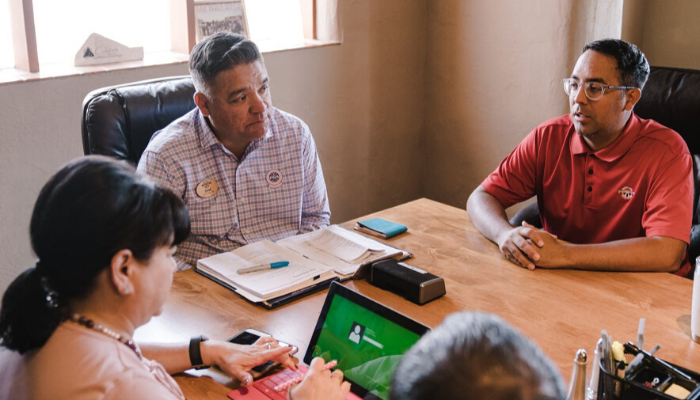By Rajkanya Mahapatra:
At work, communicating effectively with your colleagues is crucial to a productive work life. The reasons why it’s important to communicate well, include but aren’t limited to – getting work done, building a rapport with work friends, and ensuring a conflict-free work environment for yourself and others. In order to master your communication skills, it may be helpful to foresee some difficult situations and prepare ahead.
One such difficult situation may arise when you think or ask, “Am I offending anyone?” after you said something at work during lunch, a meeting or on the office WhatsApp group. It’s possible you’re asking that question because you’re unsure about the impact of your statement on those around you. It is also possible that you asked that question rhetorically. Either way, the question reveals a gap in your knowledge and/or reflects a deep-seated belief which warrants greater inspection, and perhaps even introspection.
In this article, we will try and address the possible reasons that might have gotten you to ask, ‘Am I offending anyone?’ and a few conscious steps you can take to becoming better at communicating at work.
Assessing Oneself
What do you do after you’ve asked, ‘Am I offending anyone?’. The first step would be to ask yourself where that question came from and what does it say about how you think. If you asked that question rhetorically, chances are there are biases at play that you may not have consciously registered.
How we think about societies, cultures and people are a reflection of our upbringing, what we were taught at school, things we imbibed from our peers, the pop culture and news we consumed. A lot of us grow up believing in convenient caricatures of other communities and their people (read: stereotypes) leading to a consolidation of biases that dictates our thinking and interactions when we engage with other people, including our co-workers.
Bias is tough to identify and address but if you put in some time and effort you might understand yourself better than before. Harbouring biases may also be a result of your social position, more than often than not a position that’s relatively more privileged than the others. Knowing yourself better will undoubtedly help you take your communication skills up a notch.
So, how do you begin to identify your biases? Assess your social position. Has your class/caste/gender location kept you from realising that there are sections of the population that do not operate equally alongside you? You might be unaware that the socioeconomic structures that have made life easy for you has made it difficult for others.
For example, a heterosexual able-bodied woman with considerable social and cultural capital (from a middle to high income family, has had access to education, is upper caste/savarna) might never face covert/overt forms of caste discrimination. This person’s upper caste and class identity will have protected them from many harsh realities and their question of ‘Am i offending anyone?’ maybe be rooted in ignorance.
Once you’ve found a way to realise and acknowledge your privilege, allow yourself to listen and absorb what people from identities and backgrounds different than yours have to say about their lived realities. Seek audiovisual and text-based resources online that can help you inform yourself better. In all likelihood, the ignorance will begin to be replaced with questions and you will have started off on an uncomfortable journey of systematically unlearning your biases and treating your ignorance.
You can also take this Implicit Association Test (IAT) developed by three American scientists in 1998 that helps people bring their implicit biases to their conscious selves. You could also read “Blindspot: Hidden Biases of Good People” by the creators of this test to understand their research findings.
Hopefully, the more you educate yourself, the less need you will feel to rhetorically ask, ‘am I offending anyone?’.
Asking Others
If you think the statement you just made could have come off as insensitive to your colleagues when you absolutely did not intend it to be that way, instead of going with, ‘Am I offending anyone?’ replace it with, ‘I’m not entirely sure if this was okay to say, please let me know what I can do to know more/think better.’ Changing that question into a statement that establishes your lack of knowledge and also requests for better insights might be a much better way to act in that situation. The statement will help create a space where your colleagues might feel safer and think of educating you (the onus is not on them).
Key Lessons
Any conversation, especially the one that ends with you asking if you offended anyone, needs to change for the better. Briefly, the step-by-step process to communicating more effectively in the above-mentioned situation would be to: 1) assess your position/check your privilege, 2) accept you don’t know the full picture and are open to learning more, 3) listen to understand, not respond, and 4) educate yourself and unlearn your biases, so you do not have to ask if you’re offending someone, you just don’t.
Following these four steps will not only make it easier for you to communicate more effectively, it would make the workplace a safer and more empathetic space for your colleagues.
About the author: At Ungender, Rajkanya writes about the many ways modern workplaces can become inclusive. As a graduate student, she’s exploring the location of gender in issues of cyber security, artificial intelligence and violent extremism. She’s previously worked with the online social justice media platform – Youth Ki Awaaz as an editor.
This article has been 🖊 edited by Varna
Ungender Insights is the product of our learning from advisory work at Ungender. Our team specializes in advising workplaces on workplace diversity and inclusion. Write to us at contact@ungender.in to understand how we can partner with your organization to build a more inclusive workplace.










